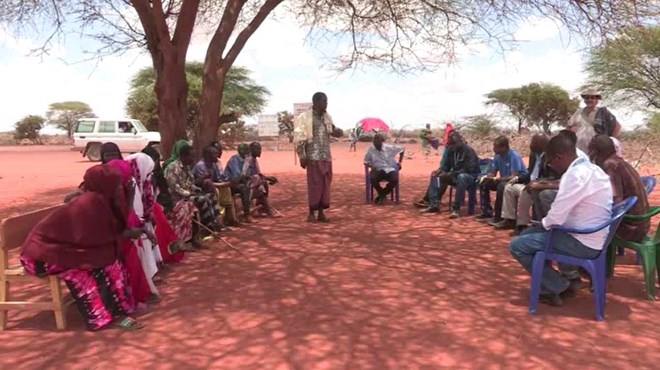The confrontation between Russia and Ukraine is affecting the situation in Somalia, which is experiencing famine, according to UN agencies.
According to the World Food Programme (WFP), Russia and Ukraine supplied up to 85% of Somalia’s wheat imports. In Somalia, meanwhile, the fighting has resulted in price rises of 160 percent in just one month.
“I understand that Ukraine occupies a large part of the planet, but human misery is human suffering, whether it occurs in Europe, Asia, or Africa. And it is here that we must live up to our moral beliefs, and [according to] our moral values, humanity matters — if we do not answer now, and if we do not increase our response, those people will be forced to go to famine. And that is not acceptable,” said WFP’s Representative and Country Director, El-Khidir Daloum.
El-Khidir Daloum, WFP Representative and Country Director, said in a joint press release released on Wednesday evening.
Daloum, who was part of a United Nations group that visited Dollow in Somalia’s southwest to examine the humanitarian situation and emphasize the catastrophic position in which millions of Somalis find themselves, asked for immediate aid to avert famine.
The United Nations has warned that a perfect combination of poor rain, increasing food costs, and massive financial gaps has put nearly 40% of Somalis on the verge of starvation.
The crisis in Ukraine, as well as other crises in Ethiopia’s Tigray area, Yemen, and Afghanistan, according to UN organizations such as the UN Office for the Coordination of Humanitarian Affairs (OCHA) and UNICEF, has diverted focus away from Somalia.
The UN has announced that a high-level meeting would be held later this month in Geneva to bring together international donors to discuss how to better support Somalia’s humanitarian needs.
“All indicators point to a worsening scenario because we are likely to have a fourth failed rainy season,” said OCHA’s Deputy Head of Office Peter Ekayu.
Weather forecasts for Somalia expect an ordinary to below-average wet season, according to the UN. More than 80% of the country has remained dry, and water and staple food costs have skyrocketed.
According to the UN, present levels of food and water assistance are swiftly being overtaken by the rapidly growing population of people who are food insecure, widening of household food consumption gaps, loss of livelihood assets, and worsening acute malnutrition levels.
The United Nations has cautioned that if the financial shortfall is not filled immediately, it will lead to worse consequences, including a real risk of widespread starvation.
The last time Somalia had a humanitarian disaster was in 2011, when starvation killed a quarter of a million people.

